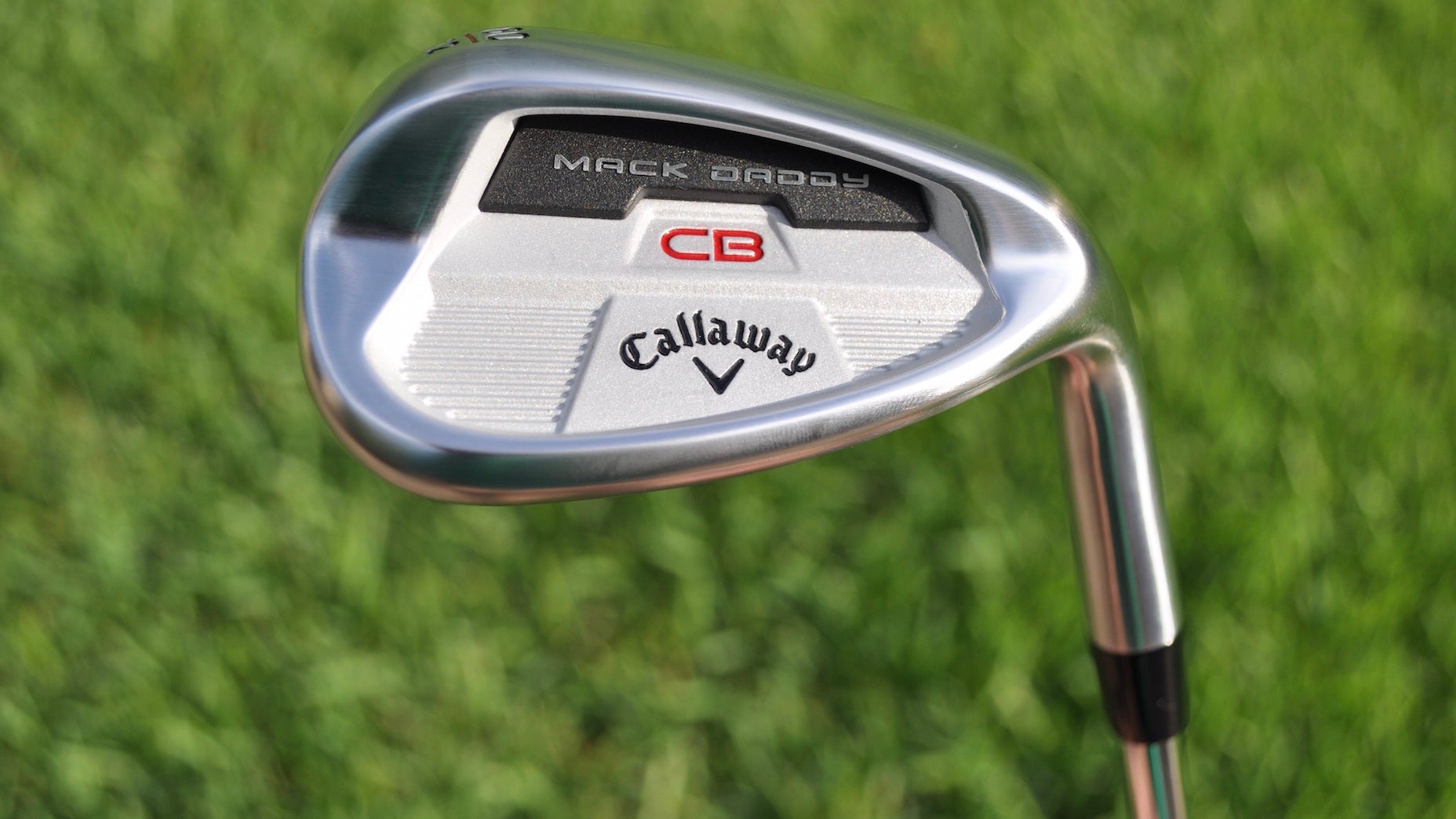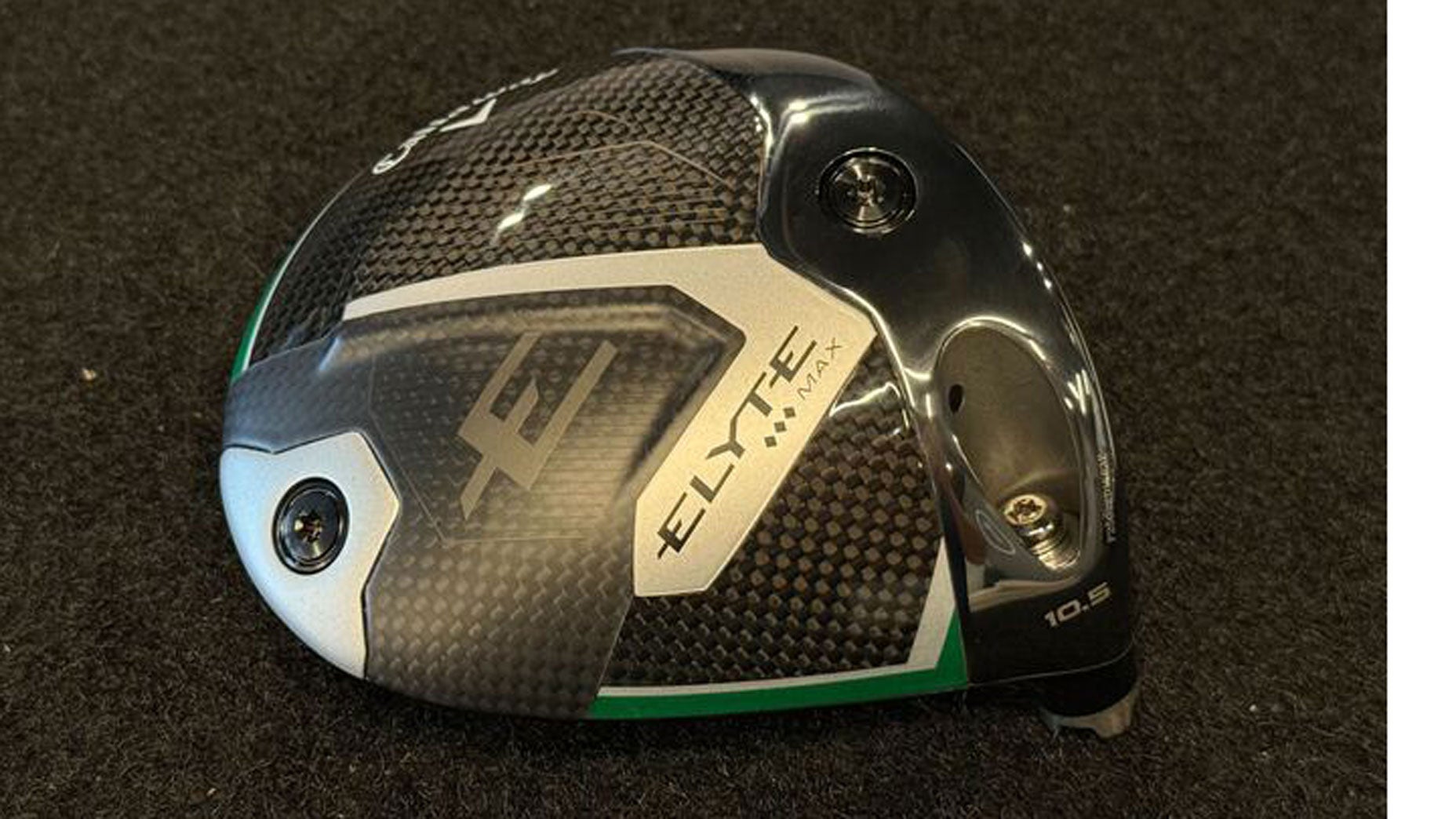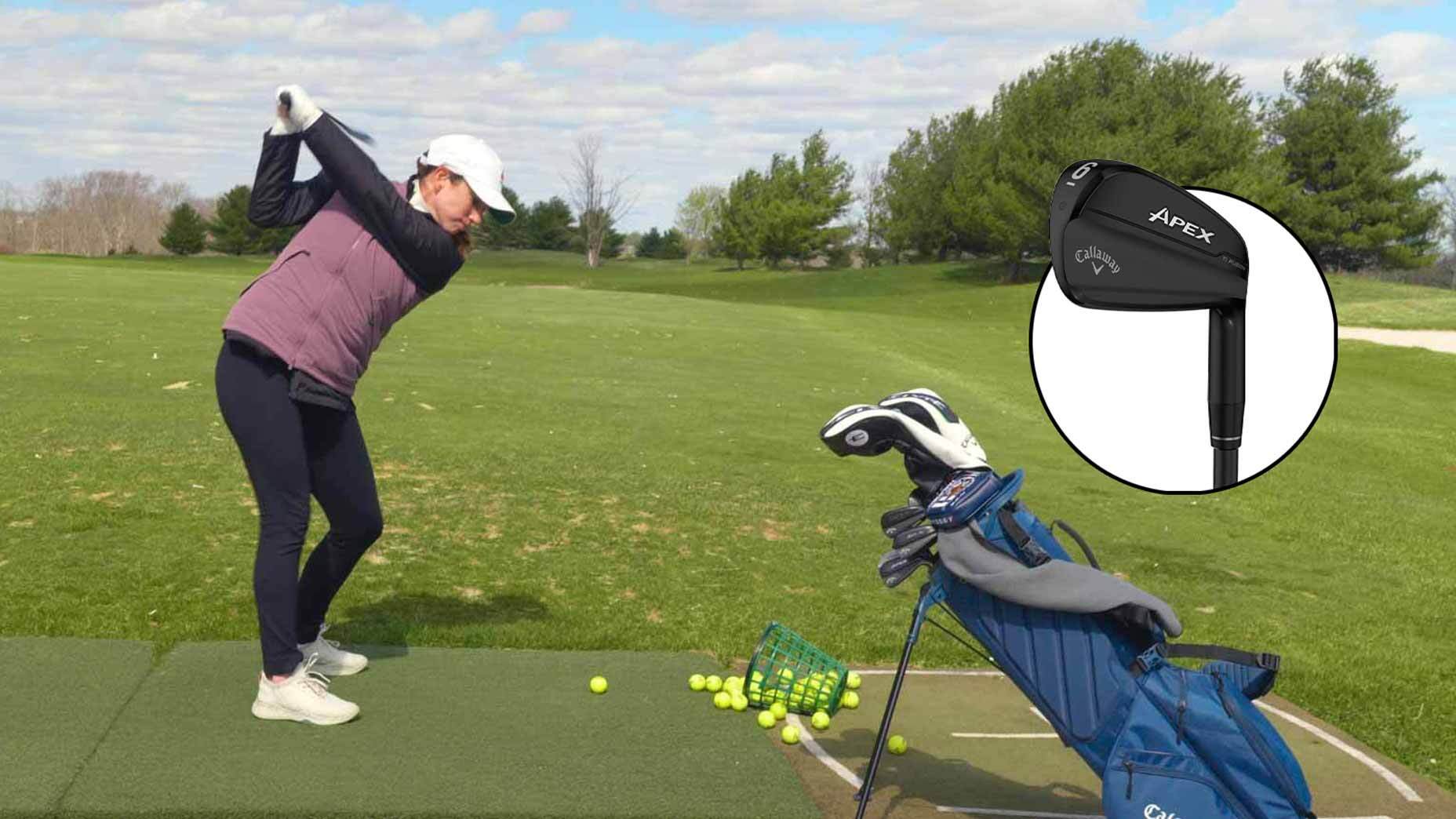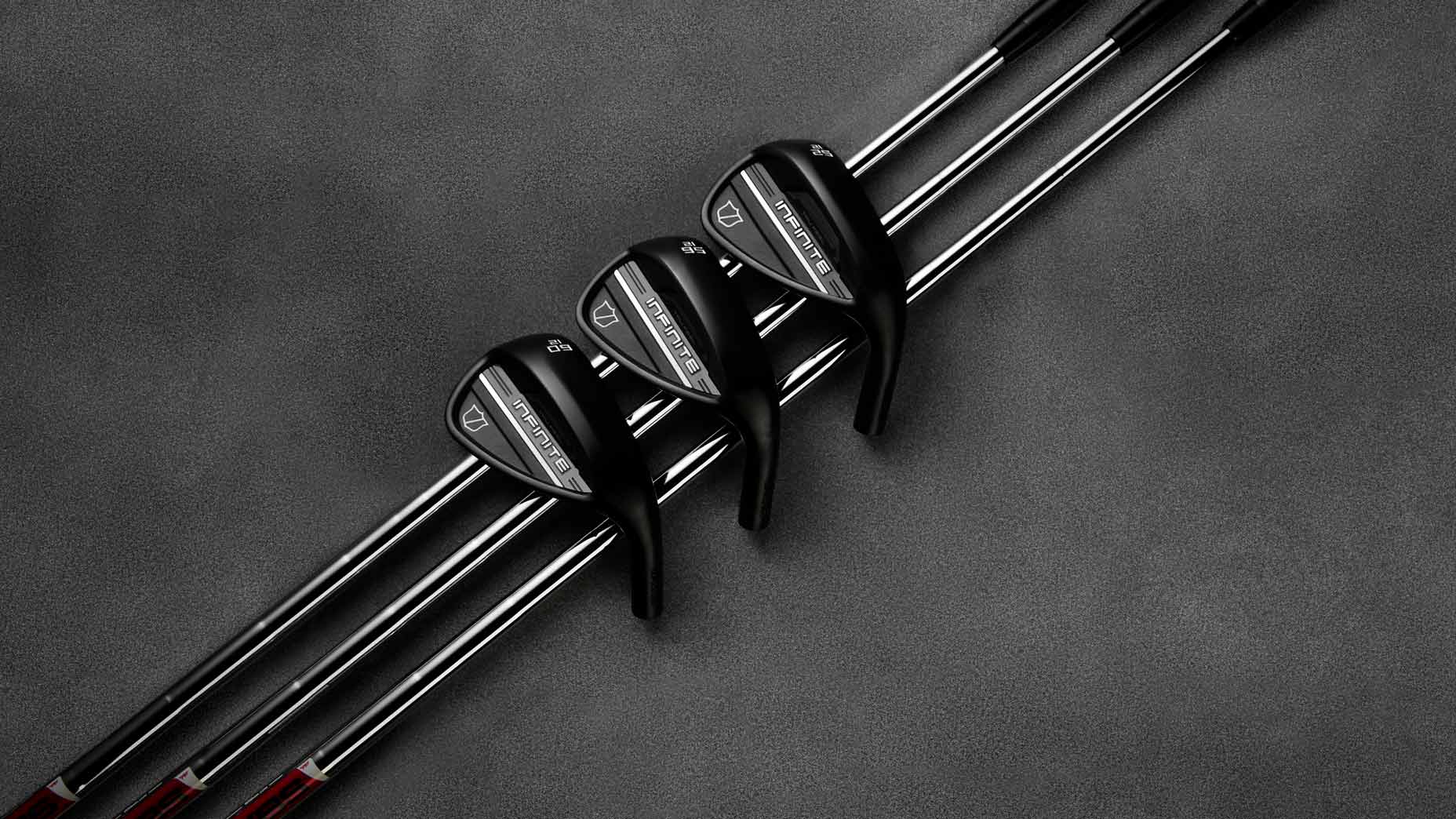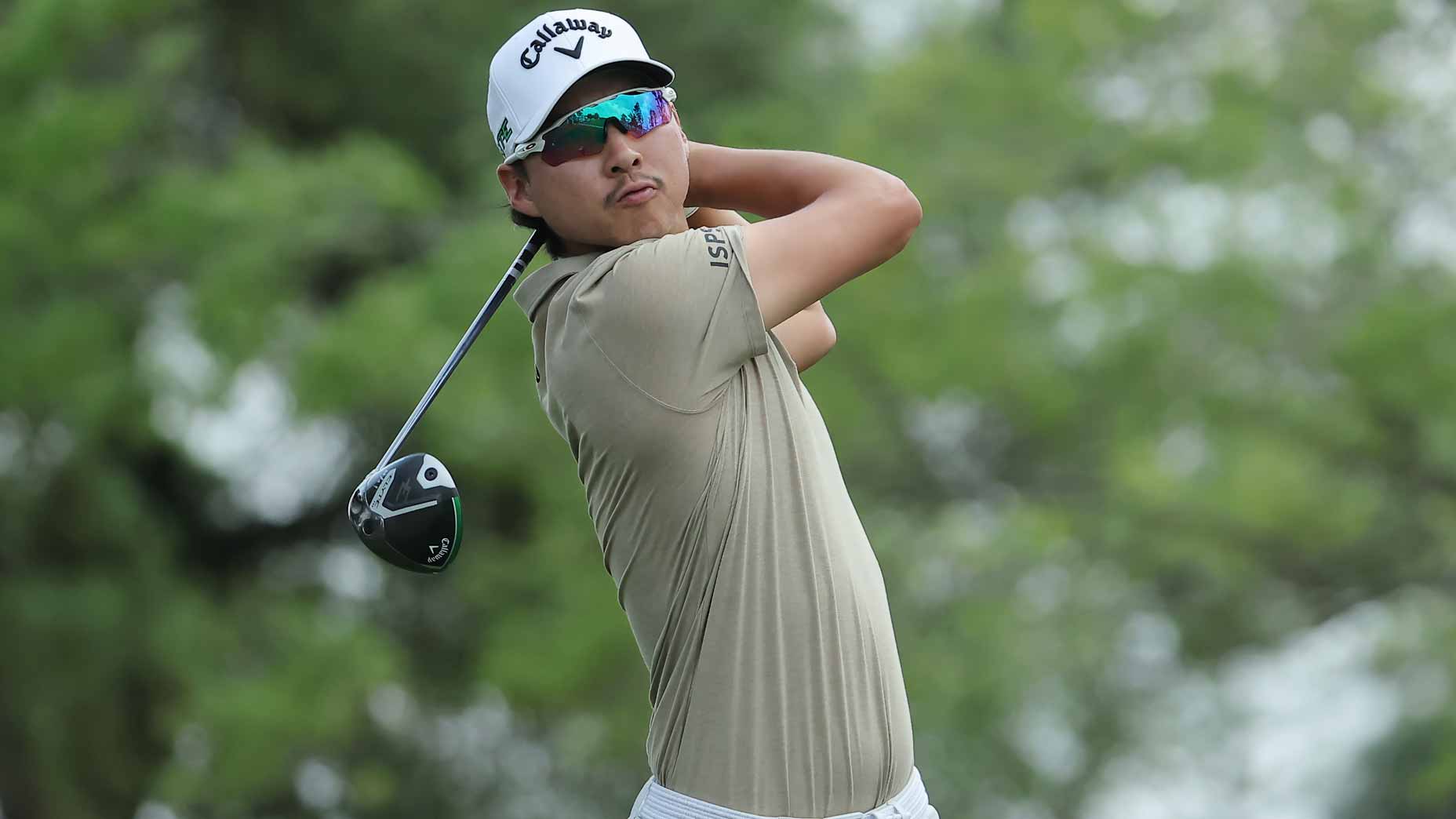6 short game tips from the legend Roger Cleveland to improve your wedge play
- Share on Facebook
- Share on Twitter
- Share by Email
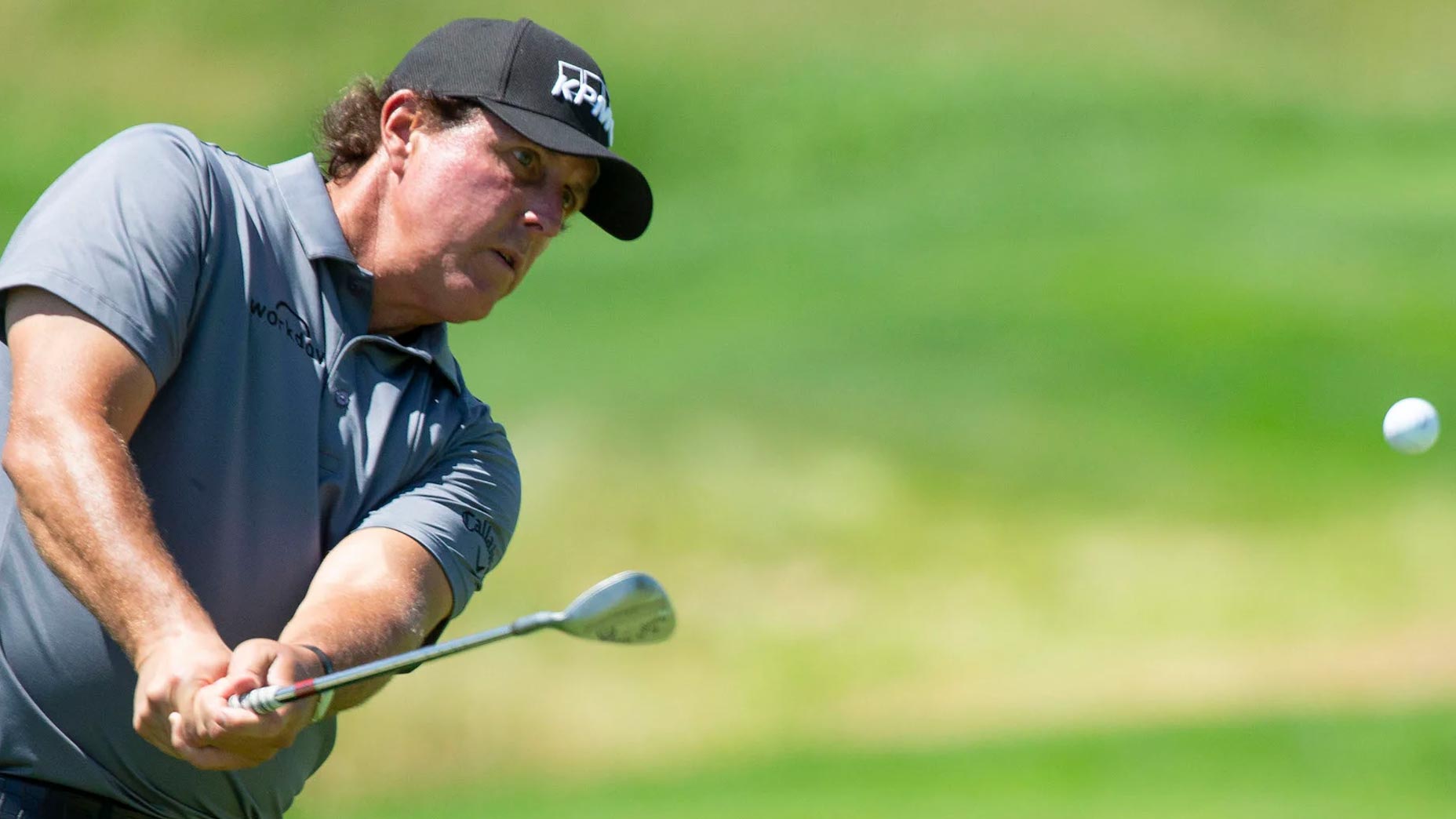
Getty Images
Callaway Golf’s chief designer Roger Cleveland is a certified legend in the golf industry, and he’s one of the foremost authorities when it comes to wedge design and fitting. He’s worked with the game’s best players throughout the years including Phil Mickelson and Tiger Woods, and he’s been designing game-changing golf clubs for decades.
Basically, when Cleveland talks about the short game, it’s best to listen.
Recently, ahead of the launch of Callaway’s new Mack Daddy CB wedge, I was able to pick Cleveland’s brain about wedge play and wedge fitting. It was an absolute treat, and I even got a wedge lesson from him (more on that later). Below are six pieces of golden short game information that he shared with me that I think will also help your game.
1) Find the right grind for your swing
Whether you’re a professional golfer or new to the game, the sole of your wedge should match the way you hit the ball. As Cleveland explains, a shallow swing tends to match up with a narrow sole grind and lower bounce, while a steeper entry matches up better with a wider sole and more bounce.
How can you tell which group you’re in? Throw a few balls down in the fairway from about 30 yards or so and take aim at the pin. Did you take a divot or not? If you didn’t take a divot, or took a small divot, you’re probably a shallow swinger. If you took a healthy-sized divot, you’re probably steep.
FIRST LOOK: Callaway’s new Mack Daddy CB (cavity back) wedge, made for more forgivenessBy: Andrew Tursky
If you’re steep and don’t have the time or desire to improve your technique (hey, no judgments here), then absolutely find a wide sole wedge for more forgiveness. It will help reduce the amount of dig and make wedge shots a bit easer for you. If you want to shallow out your swing, however, Cleveland has some helpful advice below.
2) Don’t stop at the ball, slide through it
As Cleveland explains, the “big swing” should be different than your swing from 30-40 yards and in. With a full iron swing, Cleveland says you want to impact the ball first with forward shaft lean. On a pitch shot, however, he says your club should impact the ground first with the sole of the club and then slide through the ball.
Also, do not “stop” at impact!
“You can hit an inch behind the ball, that’s actually what you want to do,” Cleveland said. “You want to hit behind the ball and let it slide through the ball. Don’t stop! When you stop, you get more narrow. When you get more narrow, you kind of crunch down and get steeper. It’s all the things you don’t want in a pitch. You want to keep your width in a pitch and you want to keep your rotation in a pitch…one of the best thoughts that I have is you want to keep your width.”
When attempting to create more width in your short game shots, think about Jason Day or Steve Stricker. Cleveland says they are two of the best at creating width.
3) To shallow out your swing, try this drill
I myself struggle from getting too steep with my wedge shots and tend to dig the leading edge into the ground when I miss it. This can cause all sorts of problems such as chunks and bladed shots over the green. Not good. For people like me, Cleveland suggests this drill.
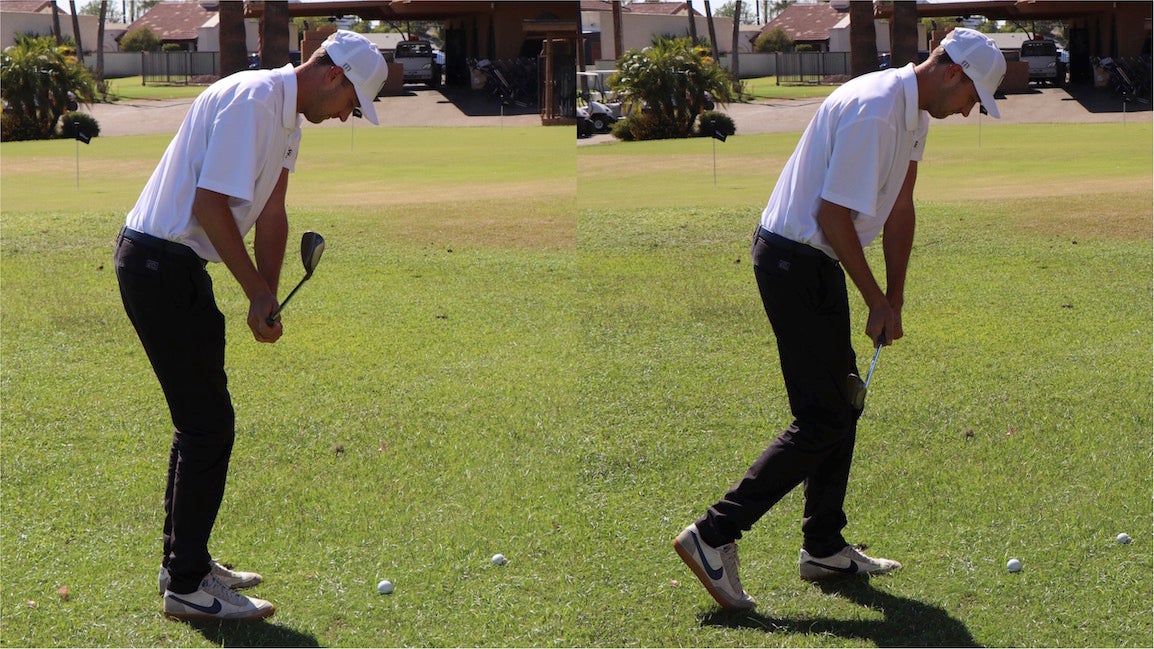
Simply slide your trail foot backwards about 1-1.5 feet, hit a few pitch shots and let your body react naturally. As I experienced, the stance forces you to get more shallow; if you’re too steep, you’ll lose your balance.
This is a great drill to feel what a shallow wedge technique is like. If you’re still getting steep and taking divots, try rotating your arms a bit more and “exposing the loft” to engage the bounce, suggests Cleveland. Basically, instead of shutting the face down, try to keep it more open; this will help you use the sole instead of the leading edge.
4) Find the right weight for you
If you don’t have the right tools in your bag, then improving your technique is going to be that much more difficult. For Cleveland, he says he often sees amateur golfers with wedges that aren’t the proper weight for them. For instance, ladies or juniors will have hand-me-down clubs that are too heavy, and it “looks like they’re chopping wood,” says Cleveland.
With wedges that are too heavy, it could cause the player to get too wristy and steep; as discussed previously, getting steep is often the cause of many problems.
A proper wedge fitting is the best way to find the right weight for you. If a fitter isn’t available nearby, try at least to find the same weight shaft for your wedges that you use in your irons, or even lighter, says Cleveland.
5) If it works, don’t stray too far from your gamer
Wedge fitting is great, but if you have a wedge that works already then don’t stray too far off course. Make sure the new wedge has a sole grind, bounce and loft that’s close to your old wedge. Cleveland says that he always asks to see the player’s current gamer wedge during a wedge fitting; if it works, then he wants to get close to that sole grind with the new wedge.
“You probably can’t go very far away from your gamer if it is truly working very well for you,” Cleveland says. “You can go 1 or 2 degrees max away from it, and usually that’s it.”
If you’re having any issues at all, however, or are simply curious to give something different a try, then by all means experiment. Remember, having an open mind when it comes to equipment isn’t such a bad thing.
6) High-lofted wedges aren’t for everyone
Most pro golfers these days use 60-degree wedges, or even higher, so most amateur golfers blindly follow suit. The problem is, as Cleveland says, that 60-degree wedges aren’t for everybody.
“It mostly goes to the person’s physical ability,” Cleveland says. “If they’re strong, I might want to look at a 60-degree wedge. If they’re a little older, or not so strong, then I might look at a 56- or 58-degree maximum. If the person is older, like me, I would say 56 should be your highest loft.”
If you tend to struggle with your lob wedge, don’t feel pressure to keep it in the bag. You only get 14 clubs to play with, so don’t waste a slot on a club that causes frustration and poor shots.
Latest In Gear

Andrew Tursky
Golf.com Editor
Andrew Tursky is the Senior Equipment Editor at GOLF Magazine and GOLF.com.

